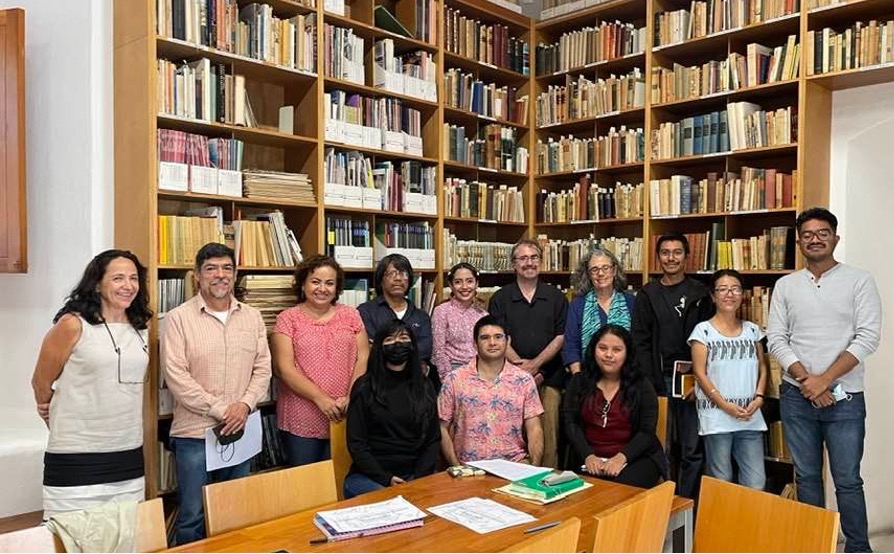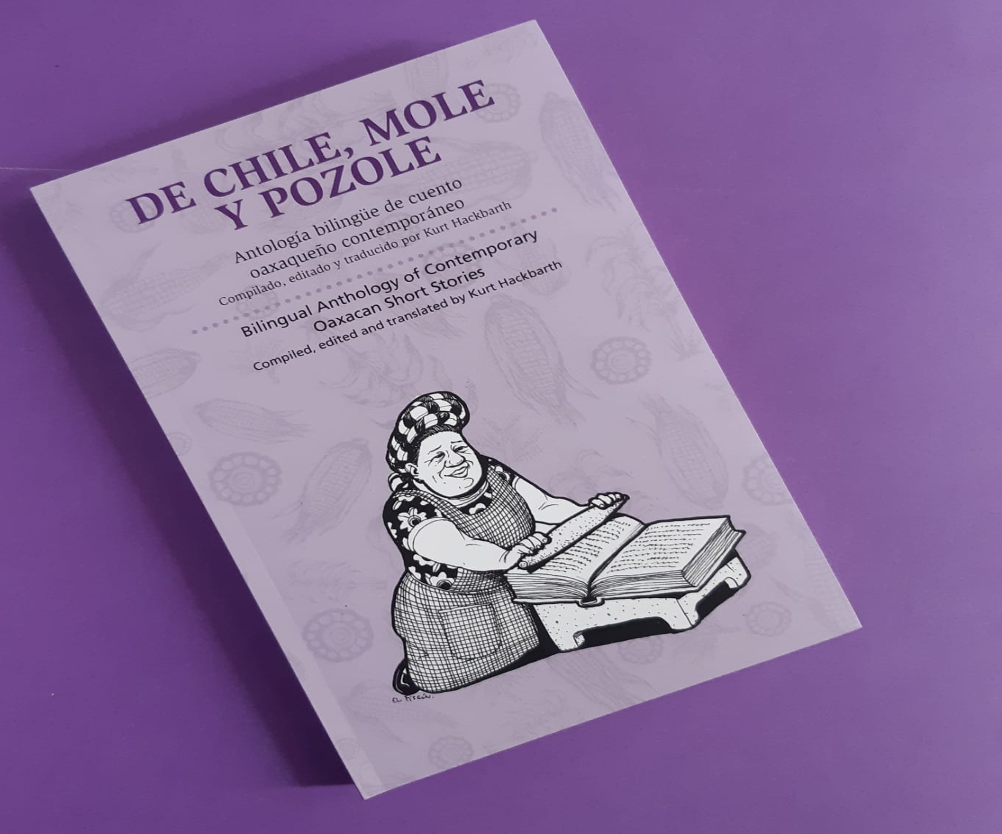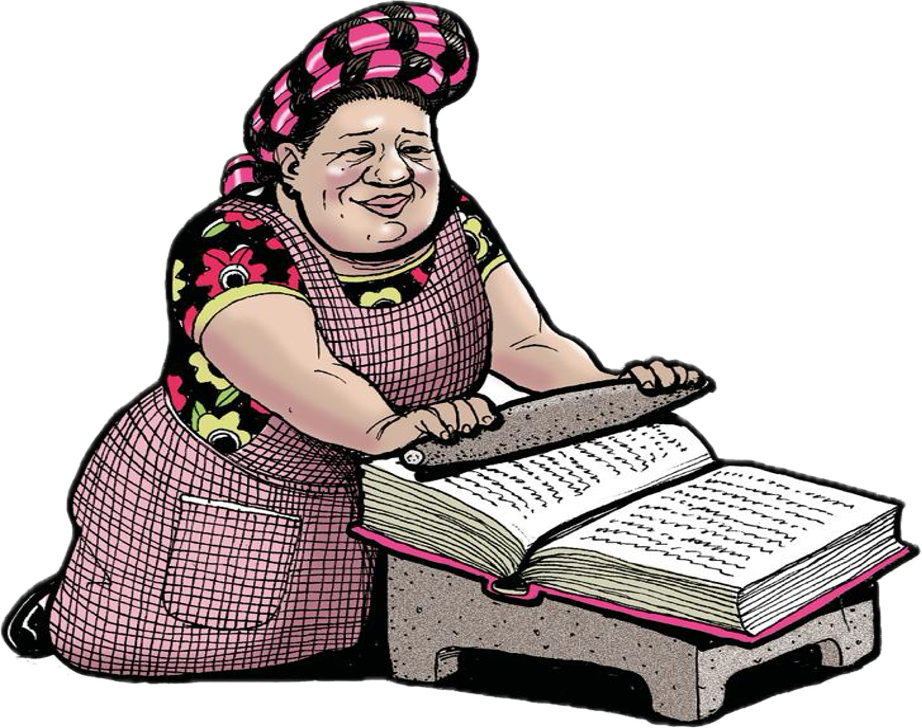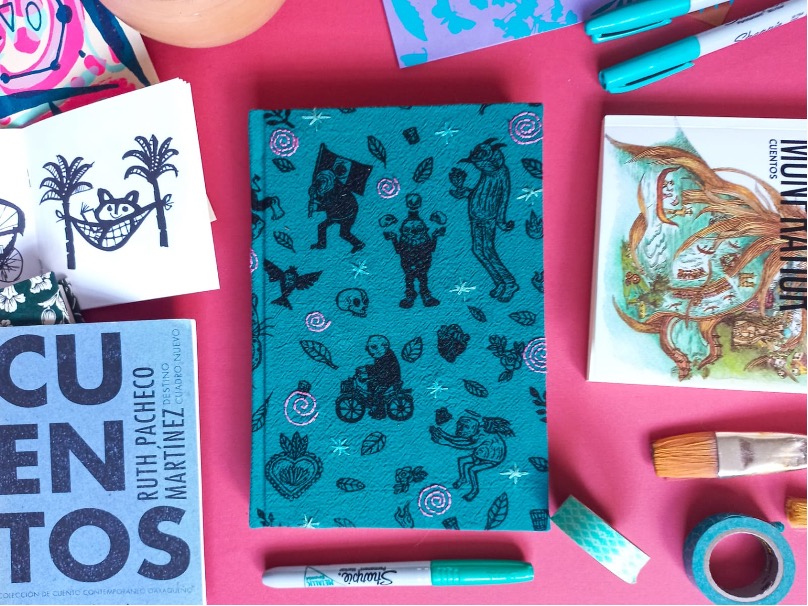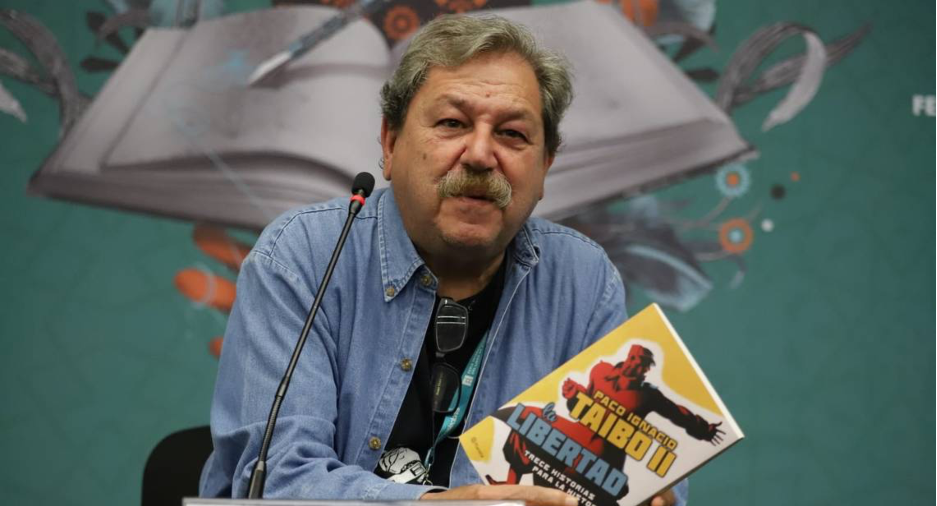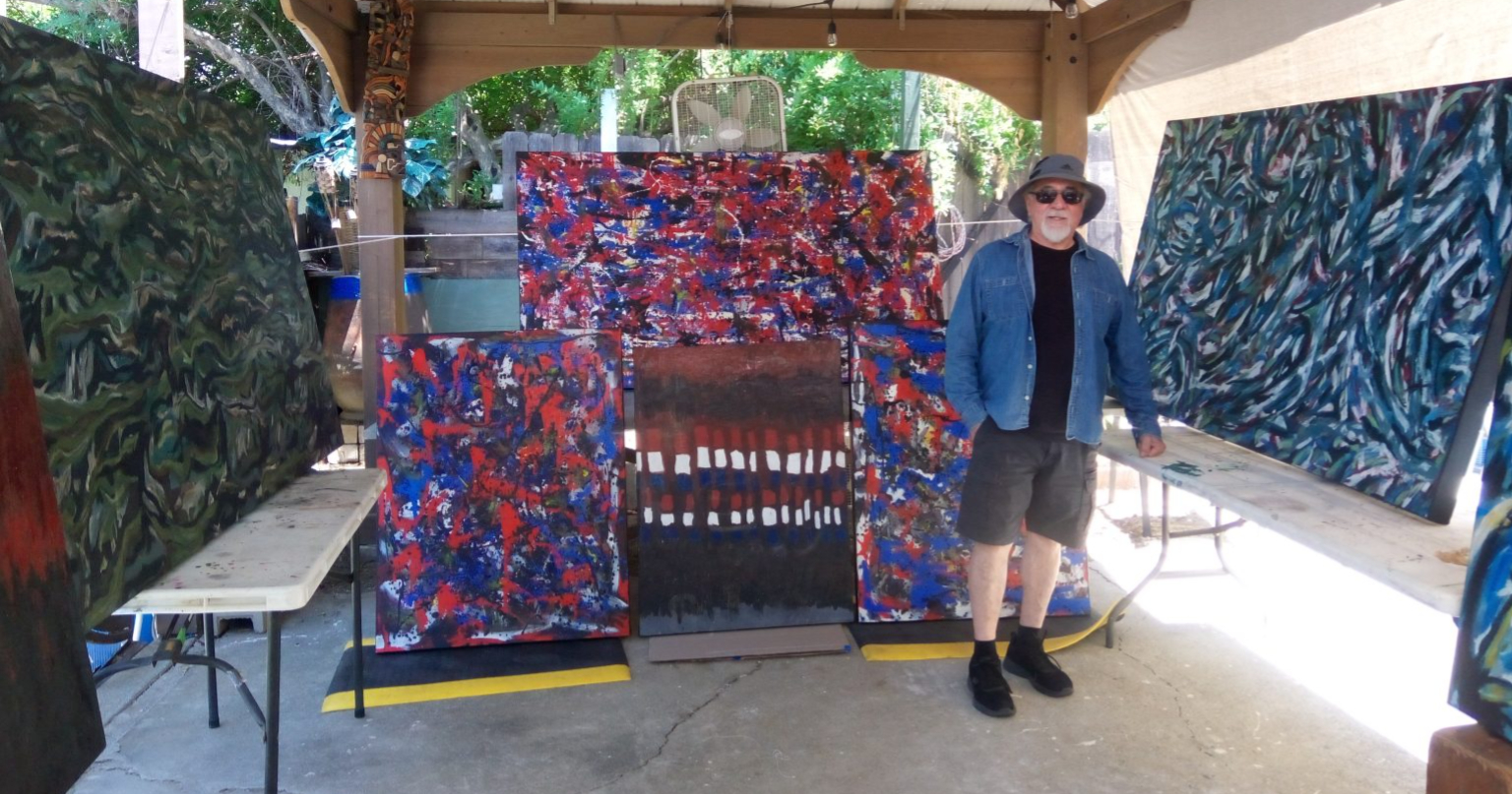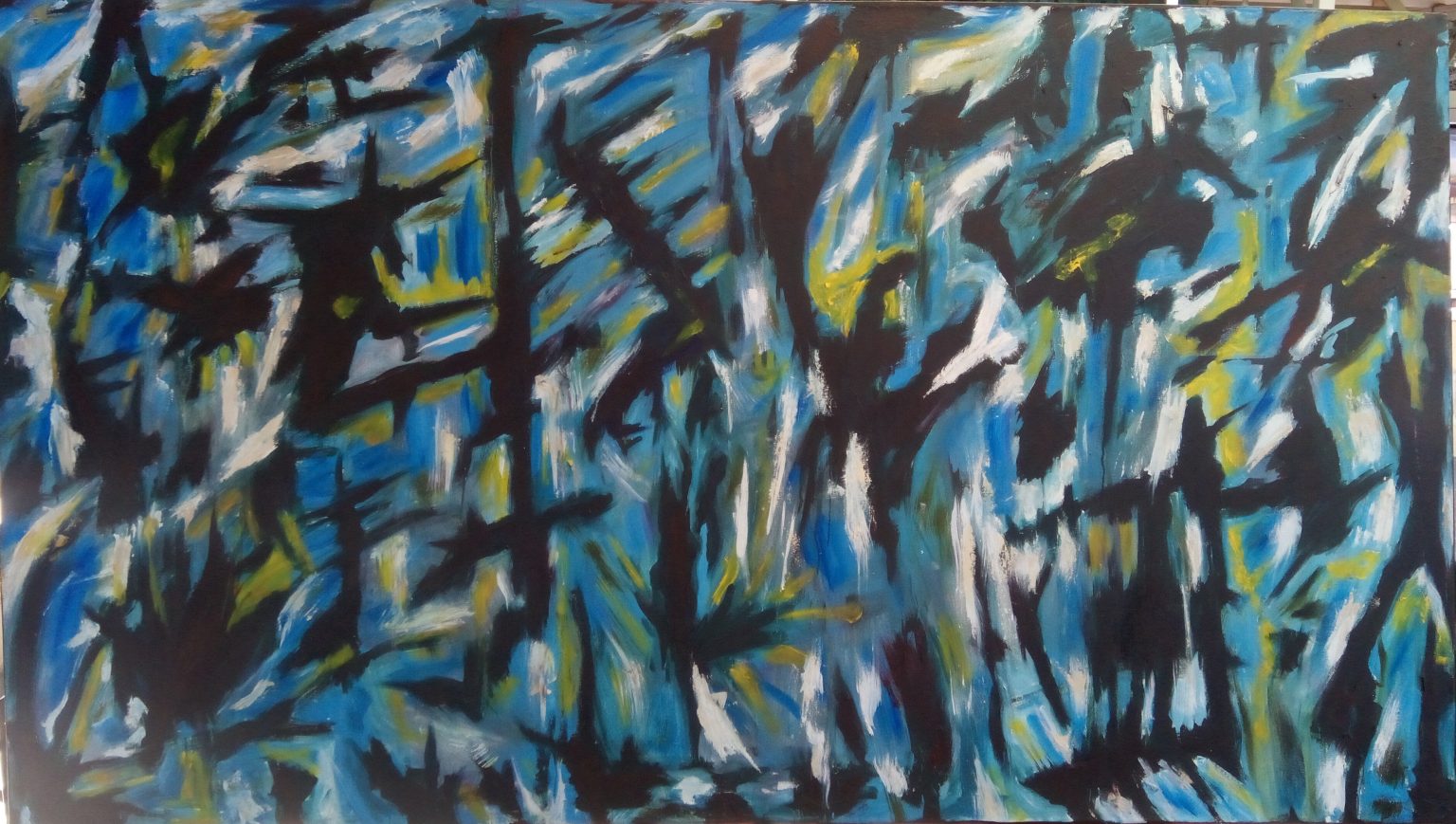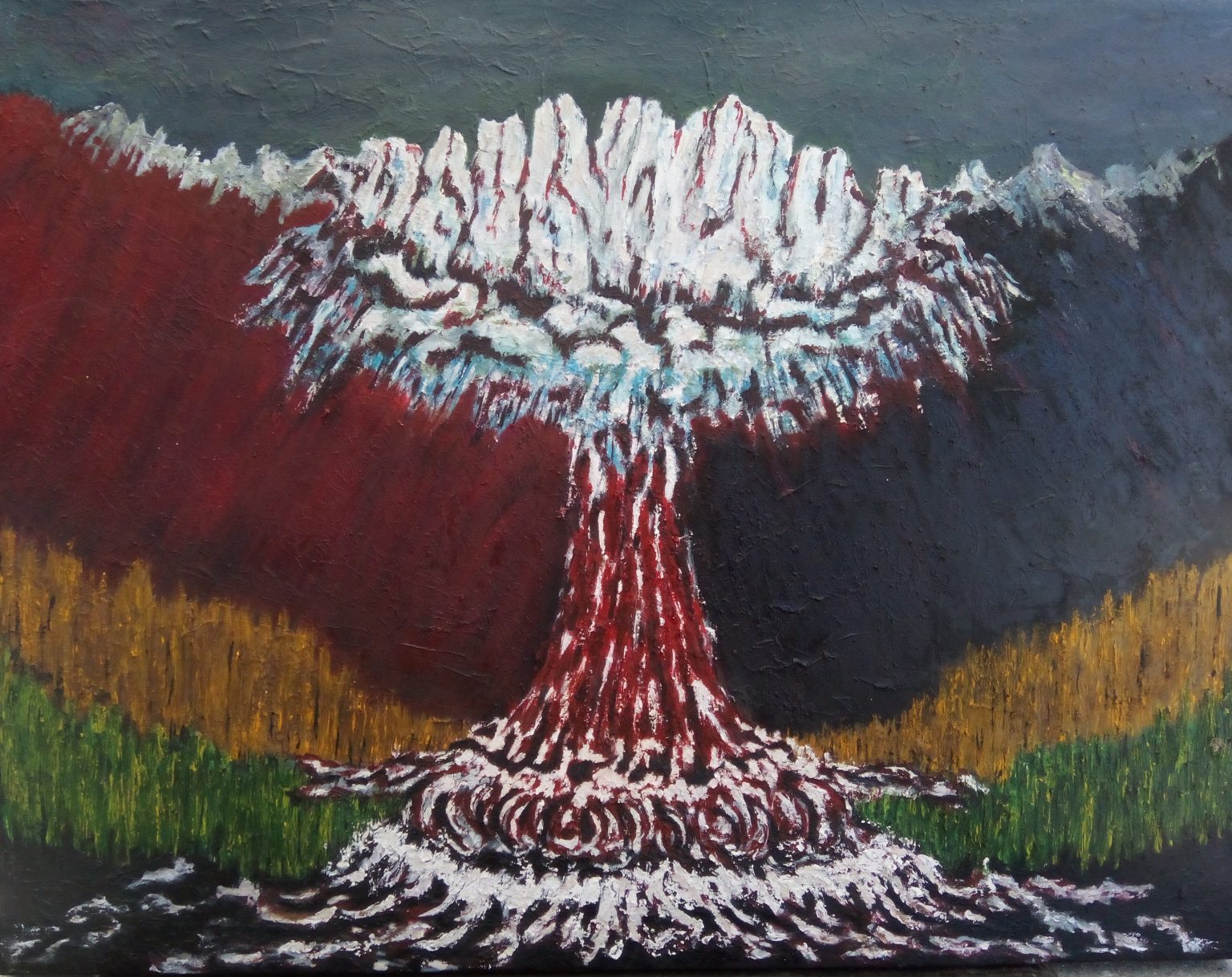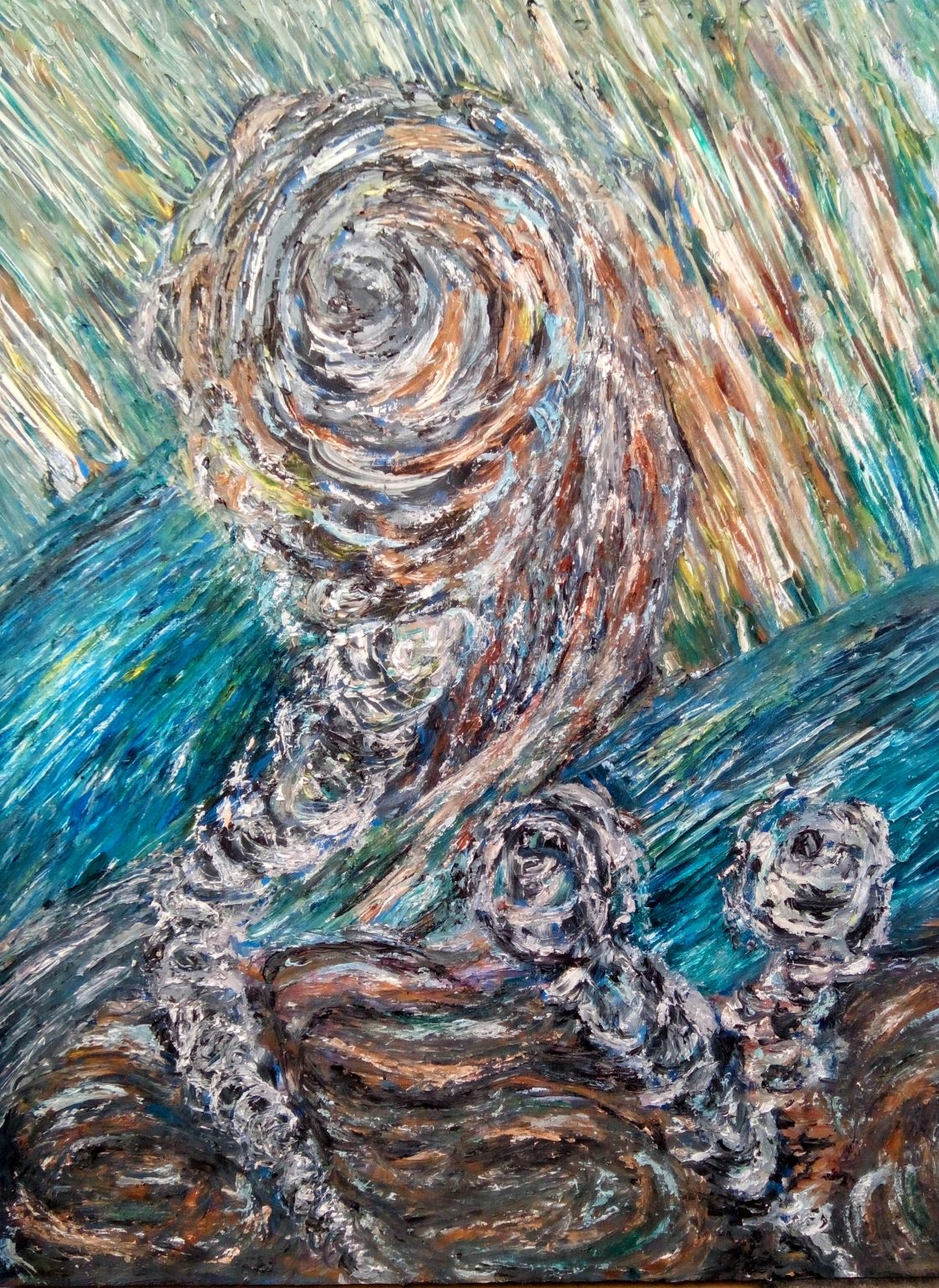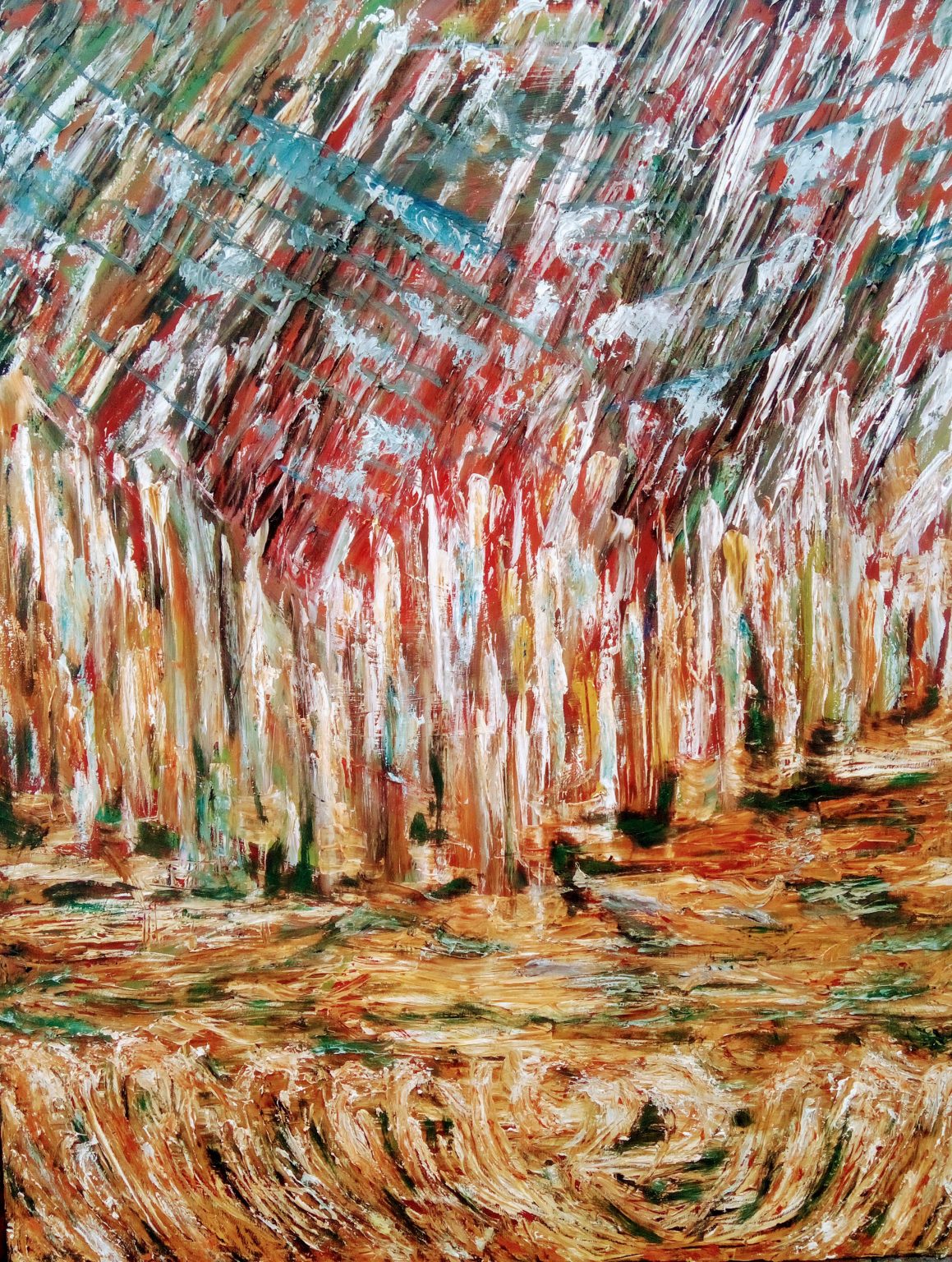|
|
The weekly newsletter of the Mexico Solidarity Project |
|
Every issue archived online at mexicosolidarityproject.org |
|
August 28, 2024 |
|
|
|
A Love Letter to Books — on Paper! |
|
Meizhu Lui, for the editorial team |
|
|
Many of us love the heft of a book in our hands. We love its feel. The flexibility of old leather, the warmth of cloth, the smoothness of glossy paper, the thickness of a page. We’re taken with the graphics on the cover, the colors, the font that invites us to grab that one off the shelf.
And that’s before you open the book!
If you have kids, you know how fascinated they are, not only with the story but with the physical book itself. By the time they’re four, they get hooked on electronic media if we let them — but for many, that love of books never dies.
But like everything else in our economy, the drive for profits has led to the rise of publishing and book selling oligopolies. These mega-companies don’t want or need to take risks. So, what choices do readers have beyond "bestsellers" stamped with the New York Times approval? How do new writers from marginalized communities find their way into your book collection?
The only way is for people to do it themselves. We know Kurt Hackbarth well from his political journalism, including his regular Reflections column in this Bulletin. But he’s also a fiction writer — and a book publisher.
Micropublishers — which he compares to microbreweries — create unique offerings beyond the ordinary flavors, and paper and book bindings add to the charm. What drives these community-based publishing houses (truly houses, his is in his tiny apartment) is not profit but the desire to bring new voices into the conversation.
From the beginning of human civilization, books have bonded and tied together generations and peoples — you and me — and empowered us to step outside ourselves to explore and celebrate our common humanity. |
|
For a deeper dive into current news and analysis in English, check out our media website. And definitely see the new English podcast ¡Soberanía! (Sovereignty) with José Luis Granados Ceja and Kurt Hackbarth. They entertain, while dismantling the lies and distortions about Mexico fed to us by the mainstream media. |
|
Don’t miss an issue! Sign up for a free Mexico Solidarity Bulletin subscription. |
|
|
De Chile, Mole y Pozole: Stories from Oaxaca |
|
|
Writer, playwright, and journalist Kurt Hackbarth is a naturalized Mexican citizen living in Oaxaca. His political commentary is regularly featured in Sentido Común, Al Jazeera, Jacobin, the Mexico Solidarity Project’s Bulletin, and its podcast Soberanía. Committed to getting new writers published, he and his partner, Nidia Rojas, created their own publishing house. They just put out a new bilingual anthology of Oaxacan authors, De Chile, Mole y Pozole. |
|
Your new anthology of short stories from Oaxacan writers is out! Are most of them indigenous? How did you decide who to include?
The state of Oaxaca does have a high percentage of people from many different indigenous ethnicities — they total about 39% of the population. There are many mestizo people, Afro-Mexican communities in the southwest and Anglos.
I live and work in the capital city of Oaxaca de Juárez. As a writer, I’ve always wanted others to also unleash their creativity through writing. For the last 15 years, I’ve taught literary workshops, including a recurring one on short story writing. |
|
|
Taller de cuento (Storywriting workshop), Photo: Kurt Hackbarth |
|
In Oaxaca, no college-level degree in literature has been available until very recently, so students have to travel out of state to study writing. The Henestrosa Library, a beautiful building, is easily accessible to all in the city. It offers a series of workshops, including mine. The people who sign up for my workshop are a real mix in age, ethnicity, and current and former jobs.
Every Saturday, we spend two hours reading and analyzing a short story, looking at the various ways stories are told and constructed. Then, for two hours, we do writing exercises. By the end of the course, participants will have completed a short story.
After a workshop ends, sometimes participants want to continue honing their writing skills, which makes me happy. I helped some of them form a collective of short story writers, the Colectivo Cuenteros. They meet weekly to give each other feedback on what they’re writing. The authors included in the anthology come from this group; I’ve known some of them for many years.
Did you choose a theme for the anthology? And did you work with the authors to bring the book to fruition? |
|
There isn’t a theme — the only criteria is quality. Writers proposed what they considered their best stories for inclusion, but those weren’t necessarily the final choices. The title of the anthology is De Chile, Mole y Pozole, a Mexican phrase referring to a variety or assortment. And by the way, pozole is a traditional soup or stew of indigenous origins. Its base is hominy, or ground corn, Mexico’s staple food, cooked in broth with meat and all kinds of vegetables thrown in. And Oaxaca is known to have the best mole. |
|
|
Anthology De Chile, Mole y Pozole, a Mexican phrase referring to a variety or assortment |
|
The anthology has a variety of voices. Some authors come from different indigenous pueblos, and others are from the Central Valleys. A few were born in other parts of the country but have come to live and work here. Many different styles of writing are included — social realism, fantasy, historical fiction, comedic, coming of age and gritty.
I wanted to bring these stories from Oaxaca to a new English speaking audience, so the book is bilingual. I’ve been to book fairs where people are looking for books of Oaxacan literature in English, and they’re not to be found. Translating was the hardest part, and I enlisted readers to ensure the translation was as true to the original in meaning and tone as possible.
There are writers — and there are publishers! You have your own publishing house. Why? Some publishers do marketing; how do you sell your books? |
|
|
El Fisgón designed the cover of De Chile, Mole y Pozole. |
|
|
Nidia Rojas production, Photo: Kurt Hackbarth |
|
My partner, Nidia Rojas, does bookbinding, book restoration and production using local paper and materials. In 2019, we decided to start a publishing house, Matanga Taller-Editorial, out of her workshop in order to publish Oaxacan authors. We wanted to produce books that look handsome and feel wonderful in your hands, but are not unaffordable. We’ve worked with various artists and illustrators; the famous political cartoonist El Fisgón designed the cover of De Chile, Mole y Pozole. |
|
The good news is that new small publishing houses are booming — in Oaxaca alone, we have six or seven. We consider ourselves the craft brewers of the publishing world! And for us, publishing books is a labor of love; as long as we don’t lose money, we’re ok.
For the books Nidia and I publish, we get them into local bookstores, which sell them on consignment. We do take them to book fairs across the country and also have an online store.
Mexicans love books, but they’re largely unaffordable for working-class people. Paco Taibo was named the head of the national government’s Fondo de Cultura Ecnomica and promised to make available a huge number of affordable books. Has he succeeded? |
|
|
|
|
Paco Taibo with his book, La Libertad, Photo: David Tamayo, El Occidental |
|
|
|
Paco definitely shook up the Fondo. Instead of catering to urban and elite culture, he promised books for the masses. It turns out that tons of books were piled up in warehouses. He got them out and practically gave them away. This is good. But the downside is that this can wind up undercutting small publishers like us. We can’t afford to give books away.
Interestingly, one of president-elect Claudia Sheinbaum’s proposals is to create a “republic of readers.” So we look forward to policies encouraging books and independent publishers.
Most of us know you as a journalist, but you’re also a playwright and fiction writer. Would you rather focus on fiction, but journalism pays the bills? Or are they two aspects of the same purpose in your writing? |
|
|
Kurt (center) and cast in the play he wrote and produced in 2013, El Ostrakón/The Ostrakon |
|
I’m equally committed to both kinds of writing; they’re complementary. In the new Mexico Solidarity Project podcast that I co-host with José Luis Granados Ceja, Soberanía, I hope we show that fact-based journalism doesn’t have to be dry — it can be entertaining. And there’s no dearth of science fiction or detective novels — such as Paco Taibo’s popular series — that have political underpinnings.
Books are part of what makes us human. We read to understand our world, to open our minds and imaginations, and simply to enjoy life. |
|
|
|
|
Pedro Rios Martinez’ Visual Conversation |
|
In a daring exhibit, abstract painter Pedro Rios Martinez articulates his most alarming worries in a new exhibition, ‘Visual Conversation.’ A multimedia artist of Mexican descent, his work stretches from abstract expressionism to figurative sculptures and drawings to lithography. All images are of paintings by Pedro Rios Martinez. |
|
|
Artist Pedro Rios Martinez at his studio, Montebello, CA, 2024. ‘Insurrection’ behind him. |
|
Precursors to the exhibit’s Insurrection triptych are Los Lagartos (The Alligators), Los Tiburones (The Sharks) and Los Lobos (The Wolves). |
|
|
Los Lobos, 2021 |
|
These paintings are metaphors for the backdoor deals between a pack of politicians interpreted as wolves in disguise and loan sharks working against the interests of the American people.
Rios Martinez’s sharp angles suggest that he paints the canvas with a knife. Los Lobos, Los Lagartos and Los Tiburones are dense impressions of nets, webs and labyrinths. The insidious normalization of wars, of infrastructure, of neglect and of the abuse of the people’s faith and trust to build a better and more just society are strongly manifested in these paintings. |
|
|
Insurrection, 2022 |
|
His four-by-ten-foot triptych, Insurrection, is a combination of splashes, drips and jabs of paint. The largest piece in the exhibition, it is an abstract rendition of the chaos of the January 6 attack on the US Capitol.
Like an orchestra conductor gone mad, his splashes and dabs of paint interpret the piercing soundwaves of the organizers’ dog whistle call to violence. The red, white and blue strokes of paint resemble the shredded rags of a flag — we see a pattern of jagged edges aimed in all directions. Everything is chaotic and violent. There is no sense of rest or tranquility. |
|
|
Global Warming, 2012 |
|
Global warming has affected many regions of the world — in particular the Global South — with record-breaking heat, rain, drought, fires and flooding. Rios Martinez tackles it by painting it in his global warming series. Unlike other paintings in the exhibit, it has a visible horizon, and viewers can detect semi-straight lines and curves. |
|
|
Tornado, 2024 |
|
|
Flooding, 2024 |
|
His most powerful piece in this series reflects a plume of catastrophic proportions, similar to images of the atomic bombings of Nagasaki and Hiroshima. His overall message could be interpreted as: more coolers and air conditioning units will not be enough to cool us down, nor will more heaters keep us warm. Rio Martinez directs our attention to our co-responsibility with every living being on this planet. |
|
|
|
|
Recent news reports and commentaries, from progressive and mainstream media, |
|
Mexican President Asks Biden to Stop US Interventionist Attitude Telesur English. In 2023, the United States Agency for International Development (USAID) admitted to funding MCCI with over US$6 million. This Mexican NGO was founded by Claudio Gonzalez, a right-wing businessman opposed to the Lopez Obrador administration.
Timothy A. Wise, Estados Unidos se agita en la disputa con México por el maíz transgénico Pie de Página. Tras cientos de páginas de documentos y dos días de audiencias, México sigue esperando esas pruebas. Esperemos que el tribunal sopese los hechos, desestime la demanda de EE.UU. y no permita que este país abuse de un acuerdo comercial para frenar una política que no le gusta.
Timothy A. Wise, US Flails in GM Corn Dispute with Mexico Inter Press Service. In the course of the year-long process Mexico has dismantled U.S. claims, showing that its precautionary measures are permitted under the terms of the trade agreement, that its restrictions barely impact U.S. exports, and that it has a mountain of scientific evidence of risk to justify its precautionary policies.
Alejandro Ruiz, «Necesitábamos que se investigara con énfasis la contrainsurgencia. No fue así»: Comité Eureka Pie de Página. En entrevista, el Comité ¡Eureka!, la organización pionera en la búsqueda de la verdad y la justicia para las víctimas de la contrainsurgencia en México, reflexiona sobre el el Informe del Mecanismo de Esclarecimiento Histórico. Sus miembros insisten en la consigna que les ha acompañado por años: «Vivos se los llevaron, vivos los queremos»
Mexico City assembly OKs strongest rent control since the 1940s, limiting rises to inflation rate AP News. The legislature of Mexico City approved the most ambitious rent control law since the 1940s Thursday, limiting rent increases to the rate of inflation in the previous year. (Despite what’s claimed in this alarmist article, the Mexico City government does build public housing.)
Guadalupe Fuentes López, ¿Ken lo regañó? Hace semanas, Salazar apoyaba elección de jueces, “como en Colorado”. ¿Qué le pasó? Sin Embargo. El Embajador gringo Ken Salazar cambió su opinión sobre la reforma al Poder Judicial en tan solo tres meses. Primero defendió la soberanía mexicana al destacar que la discusión no era competencia de Estados Unidos e incluso simpatizó con la idea de la elección de jueces, como en Colorado, su tierra. Después sostuvo todo lo contrario al advertir que la aprobación de esta iniciativa del Presidente López Obrador “amenazaba la democracia”.
Ji Siqui, Mexican envoy to ‘good friend’ China talks trade and ‘bad news’ beef with US South China Morning Post. "In relation to the United States, they would prefer us to work only with the United States, but we are clear we don't want to do that," Ambassador Jesus Seade said. "On the contrary, we are eagerly working on attracting Chinese partnership and Chinese investment.
Cancillería califica de «injerencistas» las declaraciones de Ken Salazar, embajador de Estados Unidos en México Pie de Página. La declaración de Ken Salazar «representa una acción inaceptable de injerencia, contraviene la soberanía de los Estados Unidos Mexicanos y no refleja el grado de respeto mutuo que caracteriza las relaciones entre nuestros gobiernos».
David Bacon, Treating Migrants as the Enemy Provides No Vision for the Future Foreign Policy In Focus. The Democrats have to tell people the truth, and political campaigns are the times when this is most important. Agreeing with Trump that immigrants are the enemy to be detained at the border, and then only disagreeing on the numbers and methods, contradicts any commitment to a fact-based policy, while making immigrant communities scapegoats.
Francisco Javier Soto, Presidenta del INE rechaza a la oposición y vota a favor de reparto de pluris por partido Sentido Común. Al respecto, señaló que “el INE no quita ni regala diputaciones ni senadurías. La única que puede hacerlo es la ciudadanía con su voto”. En el mismo sentido rechazó “los intentos de colocar al INE en el incumplimiento de su función de Estado”. |
|
|
|
|
The Mexico Solidarity Project brings together activists from various socialist and left organizations and individuals committed to worker and global justice. We see the 2018 election of Andrés Manuel López Obrador as president of Mexico as a watershed moment. AMLO and his progressive Morena party aim to end generations of corruption, impoverishment, and subservience to US interests. Our Project supports not just Morena, but all Mexicans struggling for basic rights, and opposes US efforts to undermine organizing and Mexico’s national sovereignty.
Editorial committee: Meizhu Lui, Bruce Hobson, Agatha Hinman, Victoria Hamlin, Courtney Childs. To give feedback or get involved yourself, please email us! |
|
Subscribe! Get the Mexico Solidarity Bulletin in your email box every week. |
|
Web page and application support for the Mexico Solidarity Project from NOVA Web Development, a democratically run, worker-owned and operated cooperative focused on developing free software tools for progressive organizations. |




